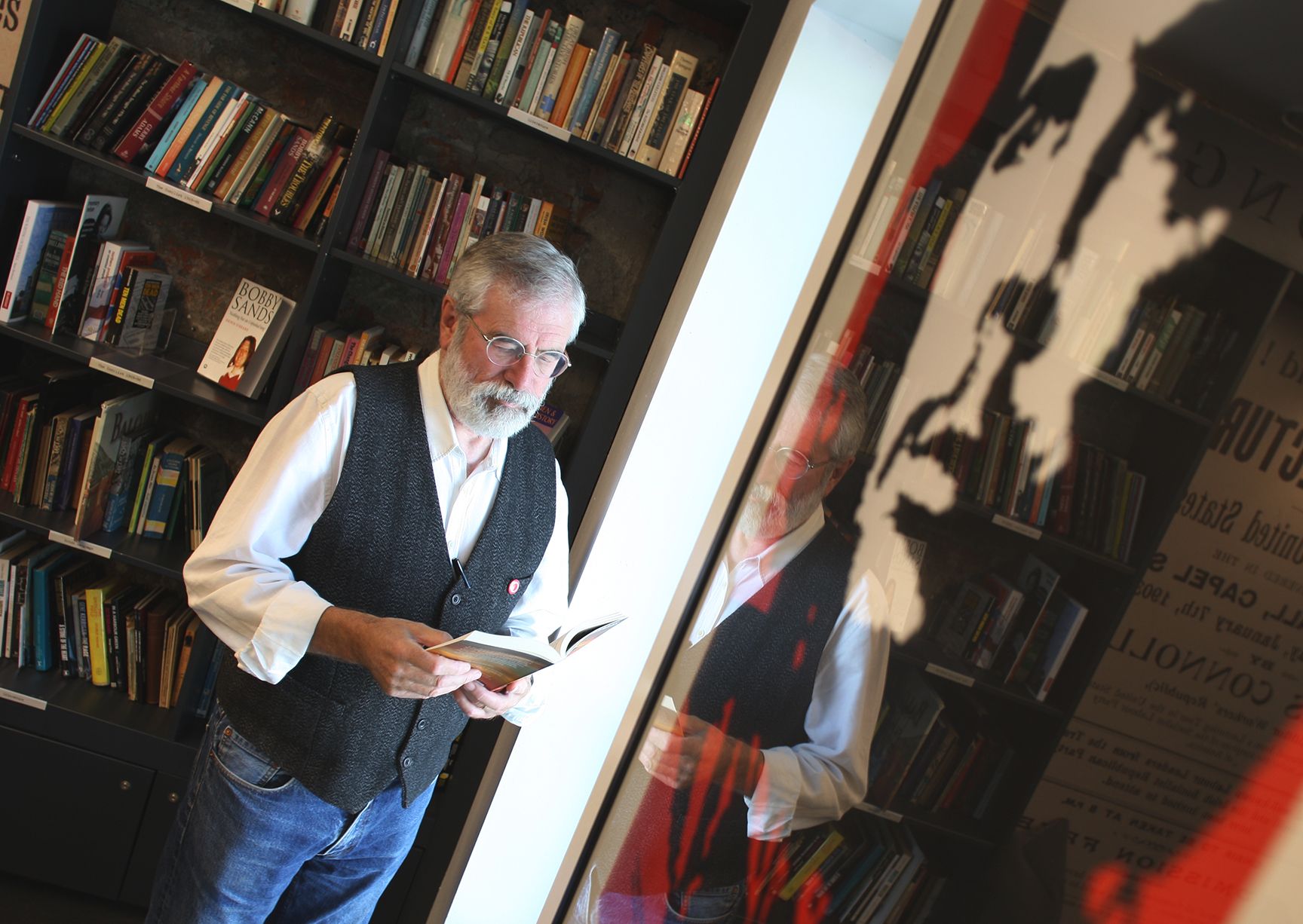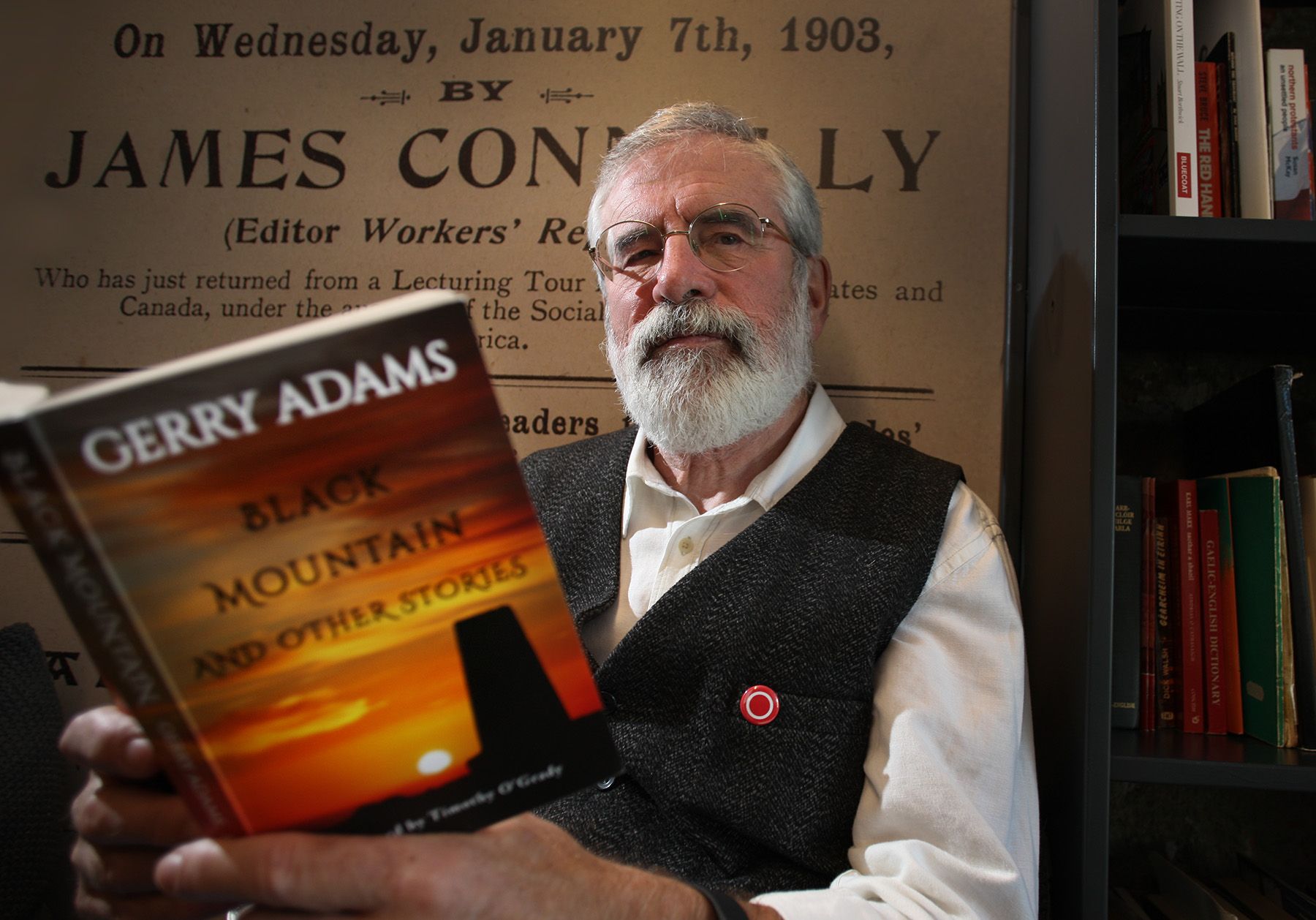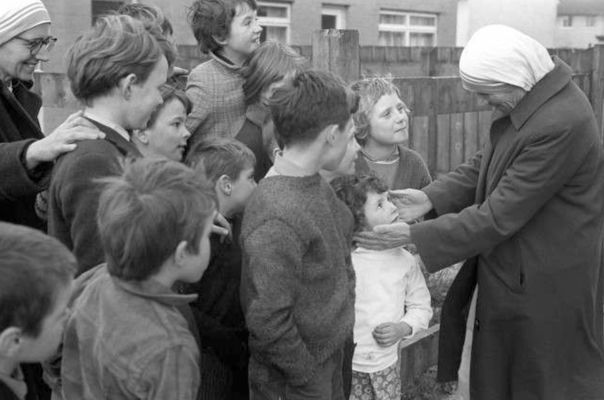GERRY Adams has spent his life in the public eye, be that as the political face of the struggle for Irish freedom, as a political representative or as an author of what now tallies at 18 books.
Having recently published his latest collection of short stories titled Black Mountain and Other Stories, Gerry took time out of his busy schedule to sit down with this reporter to discuss the book and the ideas behind it.
Acknowledging his busy workload, Gerry began by saying: “This one was six years in the waiting. That isn’t to say that it took six years to write but it took six years for me to find the time to write it.
“The pandemic and the fact that I wasn’t travelling as much meant that I could concentrate on it. I had the stories more or less drafted but as you know through writing, it is writing and re-writing.
“I was also assisted by a guy called Timothy O’Grady who is a well-known author in his own right. Timothy did the forward for this book and he gave me good advice. He deepened the writing experience for me and the thing about writing fiction. I mean I write every day but it could be political, it can be letters, emails and all that craic. But if you are writing something that is fictional, it all happens in your head. Obviously you draw on your own life experiences and you might pick up bits and pieces from other people.
“If you are writing non-fiction you have to be extremely accurate and so on. This is where Richard McAuley comes in. He would do a lot of the research for stuff that I would be writing. So while I may have written 18 books, this is my second book of short stories and I am quite pleased with it.
“Interestingly enough, when I was doing a reading at Féile an Phobail I could see places that I would re-edit again. Somebody said that a book is never written, it is abandoned so I think that that is very true.”
When asked what the inspiration behind these stories were, Gerry Adams is insistent that it is the people.
"I consider myself to be quite rounded, maybe other people might have a different view of me. That is not least because of the community and the family that I come from,” he said.
SHORT STORIES: This is Gerry Adams' second collection of short stories
“This book I dedicated to Richard McAuley but it is essentially about people – the working poor, women, prisoners, loyalists – there are two stories that feature loyalists or unionists and a lot of it is sort of encapsulated by the title.
“While one or two of the stories stray off to Galway or Dublin, mostly they are written about the shadow of the Black Mountain or the community that lives on the slopes of the Black Mountain. They were the inspiration for it and if any of the community recognises themselves or their friends in the stories then that is very pleasing.”
Readers of Black Mountain may be familiar with some of the stories as a handful have been republished from other works such as Cage Eleven. Acknowledging this, Gerry said that when he was finished writing the new stories, his publisher wanted more but he had had enough.
“I said that there are a couple of other stories floating about. The Sniper is a little cameo piece from Before The Dawn. It is a freestanding extract. Dear John is short and tells a story which isn’t told that often but is part of life, particularly the families of prisoners. The others were because the publisher liked them.
“He liked A Good Confession which ironically was subject to a court case which my former publisher Steve McDonagh – who is regrettably gone – he wanted to run an advert on RTÉ for my last book of short stories called The Street and RTÉ wouldn’t let him.
“This particular story was cited by Conor Cruise O’Brien as the reason why RTÉ should not run it. It is just a story of a working class, elderly West Belfast woman who takes issue with a young priest over his attitude at what was happening during the conflict.”
Domestic Abuse
One of the recurring themes in this work is the issue of domestic abuse, something which Gerry Adams has spoken about in terms of his own family experience.
When asked if writing these stories helped him come to terms with issues in his own life, he continued: “I have come to terms with it in so far as one ever comes to terms with those events. There are two elements to that type of behaviour. One is somebody who has experienced it as a victim or a perpetrator. Or somebody who has witnessed it and arguably is also a victim. Then there is also someone like myself who wasn’t aware of what was going on until afterwards.”
Mr Adams said that there are elements of his life that he has yet to come to terms with but these stories are not entirely related to his own experience although that has flavoured the telling of the story.
“The selection of them as stories is because I think these issues need to be talked about,” he added.
“I found it an interesting experience going back to the time of the ceasefires because obviously domestic violence and sexual violence and abuse is part of life and part of what people go through, but it wasn’t talked about a lot in Ireland generally but specifically because I think these communities were continually under siege.
“The communities were defending themselves from the enemy without, while the enemy within wasn’t really talked about. Then when the ceasefires came and we moved into a different phase these issues started to get talked about, which I think is a good thing.
“Hopefully these stories will be helpful to people who read them.”
Strong women
Throughout the book we meet a series of strong women, from Monica to Sister Mary Ann.
Gerry said that he has always been surrounded by strong women and felt that he had to pay tribute to them.
“All through my life I have been blessed with strong women from my wife Collette, my granddaughters, my daughter-in-law and going away back to when I was a child living with my granny Adams for a long time.
“What I found that throughout my life, whether it was in terms of the resistance against the Brits on the street, the hen patrols came out against the duck patrols. I found that when it came to the prisoners and in the hard days when there was a small number of people on the streets it was women. I found that when it came to the housing campaigns, whether it was Divis, Moyard, the ones up at Turf Lodge, Springhill or the Shankill, women were on the front-line.
Even though men tend to be in the photograph or the front of the campaign which is changing, the spine of it and the people who get things done are invariably women and this community, working class women who want a better life for their children.”
In a number of the stories, we see friendships forming across the divide as unionist and nationalist come together in bonds that span more than their political differences.
A United People
“The essence of republicanism is about people," explained the former West Belfast MP. "It is about people’s rights, entitlements and the primacy of citizenship. By being born you have rights, it doesn’t matter if you are a man or woman, it doesn’t matter about your sexual orientation, it doesn’t matter if you have severe disabilities but society has to reshape to reflect that.
“We won’t truly have a type of united society unless we have a united people. That is not to say that we won’t have sections of society who will dissent because that is the case in every society.
“James Connolly used a term and Bobby Sands learned this as well. Connolly talked about the reconquest of Ireland by the Irish people. What happened in 1920/21, the old English ruling class were replaced by a conservative, native class in both states. Where Connolly argued that the people have to own the freedom.
“Bobby Sands talked about this in his diary and said that when the people of Ireland have the desire for freedom in their hearts, that’s when we will see the rising of the moon.
“Ending the British connection can happen, uniting the people as Wolfe Tone said, is a means of making that happen and the upcoming referendum will be a means of making that come about.”
Working class life
While political issues are touched upon in this book, it is fair to say that it is not a political book, instead it is a look through the window of working class life.
“I would like to thank O’Brien Press and in particular, Michael O’Brien for publishing it. The whole point of this book is if you can make the reader laugh or cry. If you can make them believe then that is special. Maybe that is too pretentious an aim for this modest collection of stories, if so, if you don’t like them, then give them to someone who might,” he added.
Black Mountain and Other Stories is published by Brandon, an imprint of O’Brien Press and is available now. Copies can be obtained from An Chultúrlann bookshop, An Ceathrú Póilí.








